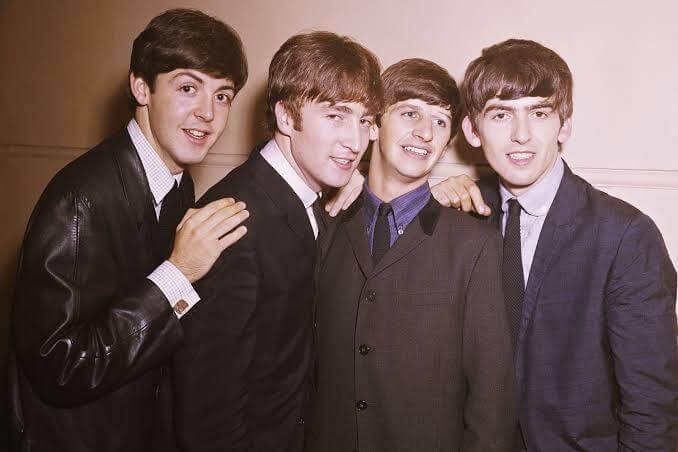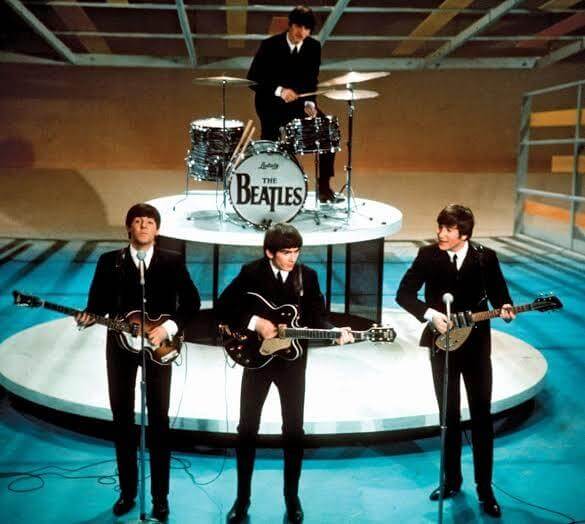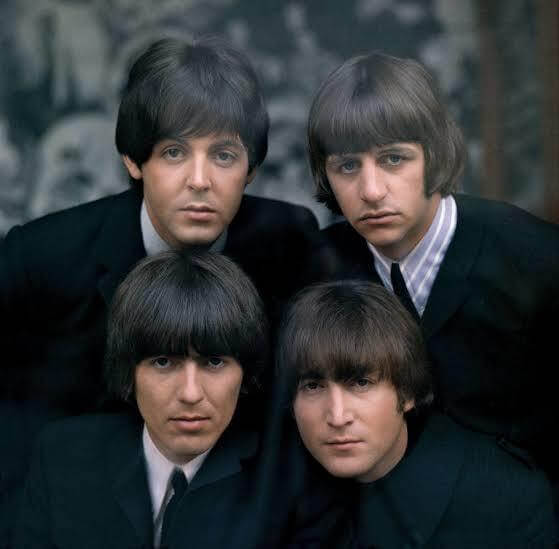The BeatlesIn Liverpool in 1960, 'John Lennon', 'Paul McCartney', 'George Harrison', & 'Ringo Starr' formed the English rock band "The Beatles". They are acknowledged as the most influential band to have ever been founded. They significantly contributed to understanding popular music as art in the 1960s and the emergence of the counterculture. The band later dabbled with various musical styles, including 'ballads', 'Indian music', 'psychedelic', & 'hard rock'. 
The band's roots are in skiffle, beat, & 1950s rock 'n' roll. Their unusual sound also included traditional pop and classical music components. The Beatles were innovators in recording, songwriting, and creative presentation, which led to a revolution in many areas of the music industry. They were regularly praised as the movements' leaders for youth and socio-cultural. Early YearsThey were only four youngsters from Liverpool before they became known as the Beatles: John, Paul, George, and Ringo. John Lennon, Paul McCartney, George Harrison, and Ringo Starr could never have predicted that they would go on to establish one of the most influential bands in contemporary history, impacting popular culture in not only music but also fashion, film, and global representation. The simple guitar-and-washboard "skiffle" music originated in Liverpool, England, and was the Beatles' initial inspiration. Skiffle was an energetic acoustic (nonelectric) musical incorporating tunes from American and British folk and popular music. Later, they were influenced by American pop performers like Little Richard (1932-), Buddy Holly (1936-1959), and Elvis Presley (1935-1977). The Beatles' four members all developed a love for music at a young age. John Lennon founded his band, the Quarrymen, in 1956, which is how the Beatles started. In 1957, Paul McCartney joined the band as a guitarist. George Harrison, a talented guitarist who was just fourteen, eventually gained a permanent place in the budding band despite first failing to convince Lennon, who was seventeen. Along with bringing on several additional members, The Beatles endured multiple name changes. Johnny, as well as the Moondogs, followed the Quarrymen. Later, they went by the names Silver Beatles and The Beatles. In 1960, they performed not just in Liverpool but also in Scotland and Hamburg, Germany. 
McCartney took over the bass when Stu Sutcliffe, the Beatles' bassist, decided to quit. When the group returned to England, Brian Epstein, the boss of a local record store, approached them about hiring him as their manager. George Martin, the producer of EMI Records, gave the Beatles a recording contract within a year of Epstein being their manager. Pete Best, the band's drummer, departed the Beatles, and Richard Starkey, best known as Ringo Starr, replaced him. Despite his initial reservations, George Martin used Lennon and McCartney's originals on both ends of the Beatles' first single. Martin was encouraged by "Love Me Do," released on October 5, 1962, that the Beatles might have a number-one hit if they had the appropriate material, and he was seen to be correct. Initial SuccessThe Beatles' "Please Please Me," released publicly in Britain on January 12, 1963, became popular immediately. The British debut album by The Beatles, completed in a single thirteen-hour session, held the top spot in the rankings for six months. The United States remained unimpressed until EMI's American subsidiary, Capitol Records, began an unprecedented (never done before) $50,000 publicity campaign one month before the Beatles' arrival. The Beatles' appearance on The Ed Sullivan Show, the most-watched entertainment program at the time, to kick off their American tour received much publicity and was quite successful. The names "The Fab Four" and "The Mop Tops" were given to them (because of their hairstyles). Beatlemania was the name given to the enthusiasm of their followers. I Want to Hold Your Hand by The Beatles, released in the U.S. in January 1964, spent three weeks at the top of the charts. It spent seven weeks at the top of the ratings before falling to number two so that "She Loves You," replaced by "Can't Buy Me Love," could take its place. Until the Beatles held the top 5 spots on the Billboard (a journal of the recording industry) list of top sellers on April 4, 1964, up to three new tracks were released each week. In addition, they placed four albums, including the top two, and another seven songs in the top 100. The Beatles had fourteen top 100 pieces a week later-a milestone that had never been accomplished before or since. New Career in MovieThe Beatles made their on-screen debut in the first of several avant-garde full-length feature films in 1964. A Hard Day's Night, a black-and-white movie that reviewers highly acclaimed, was a fictitious depiction of a day in the group's members. Fans and critics alike praised it. 
The movie Help debuted in July 1965. It was a colourful fantasy that was wildly irresponsible. Help was aesthetically more fascinating than the first movie, thanks to exotic locales in Europe and the Bahamas, but critics were less impressed. In the studioThe Beatles encouraged innovation by Martin and his recording experts by inventing technology and increasing the capabilities of recorded music. They might integrate unintentional guitar feedback, a vibrating glass bottle, or a cassette loaded incorrectly and played backwards to utilize random events creatively. From Rubber Soul on, all of these elements had a significant impact on their records, especially Revolver, in addition to Martin's abilities as an arranger & the studio expertise of EMI staff engineers Norman Smith', 'Ken Townsend', & 'Geoff Emerick'. The Beatles enhanced their songs with unorthodox devices in rock music then, using cutting-edge studio techniques like sound effects, unique microphone positions, tape loops, double tracking, and vari-speed recording. String and brass orchestras were among them, as well as 'Indian instruments like the sitar in "Norwegian Wood" & the swarnmandal in "Strawberry Fields Forever." They also used cutting-edge electronic instruments like the Mellotron, which McCartney used to generate the flute sounds on the "Strawberry Fields Forever" entrance, and the Clavioline, an electronic piano that gave the bizarre oboe-like sounds on "Baby, You're a Rich Man." Growth and ControversyRevolver and Rubber Soul, released by The Beatles in 1965 and 1966, signalled a turning point in the group's discography. The two mixed Eastern, country-western, soul, and classical influences with avant-garde covers for the most avant-garde of their albums, shattering any notion of what "rock and roll" were supposed to be. Balladry (songs that narrate stories), classical instruments, and novel structures produced stunning new notions in both albums. Sophisticated (subtle and complicated) recording techniques were used in songs like "Tomorrow Never Knows," "Eleanor Rigby," and the poetic "Norwegian Wood." Since such songs couldn't be performed live at the time, this marked the beginning of the end of the band's touring career. When Lennon stated, "We're more famous than Jesus Christ now," in a chat with a reporter for the London Evening Standard, the Beatles further offended their followers. Lennon later claimed he had been misinterpreted. However, several American youths interpreted Lennon's statements literally. The Beatles ended their final U.S. tour amidst rioting and death threats, and their albums were destroyed. Awards and achievementsIn 1965, Queen Elizabeth II appointed Lennon, McCartney, Harrison, & Starr recipients of the Order of the British Empire. The Beatles received the Best Original Song Score Oscar in 1971 for the movie Let It Be (1970). The Beatles have 20 multi-Platinum albums, 16 Platinum albums, six gold albums, seven Grammy Awards, and fifteen Ivor Novello Awards. The Beatles have eight gold albums, one silver album, four Platinum albums, four multi-Platinum albums, and four Platinum albums in the U.K. They received their induction into the 'Rock & Roll Hall of Fame in 1988. As of 2012, The Beatles, the most commercially successful group in history, have sold over 600 million albums. According to Nielsen Soundscan, the Beatles sold 57 million albums in the U.S. from 1991 to 2009.
Next TopicAlvin Ailey
|
 For Videos Join Our Youtube Channel: Join Now
For Videos Join Our Youtube Channel: Join Now
Feedback
- Send your Feedback to [email protected]
Help Others, Please Share









